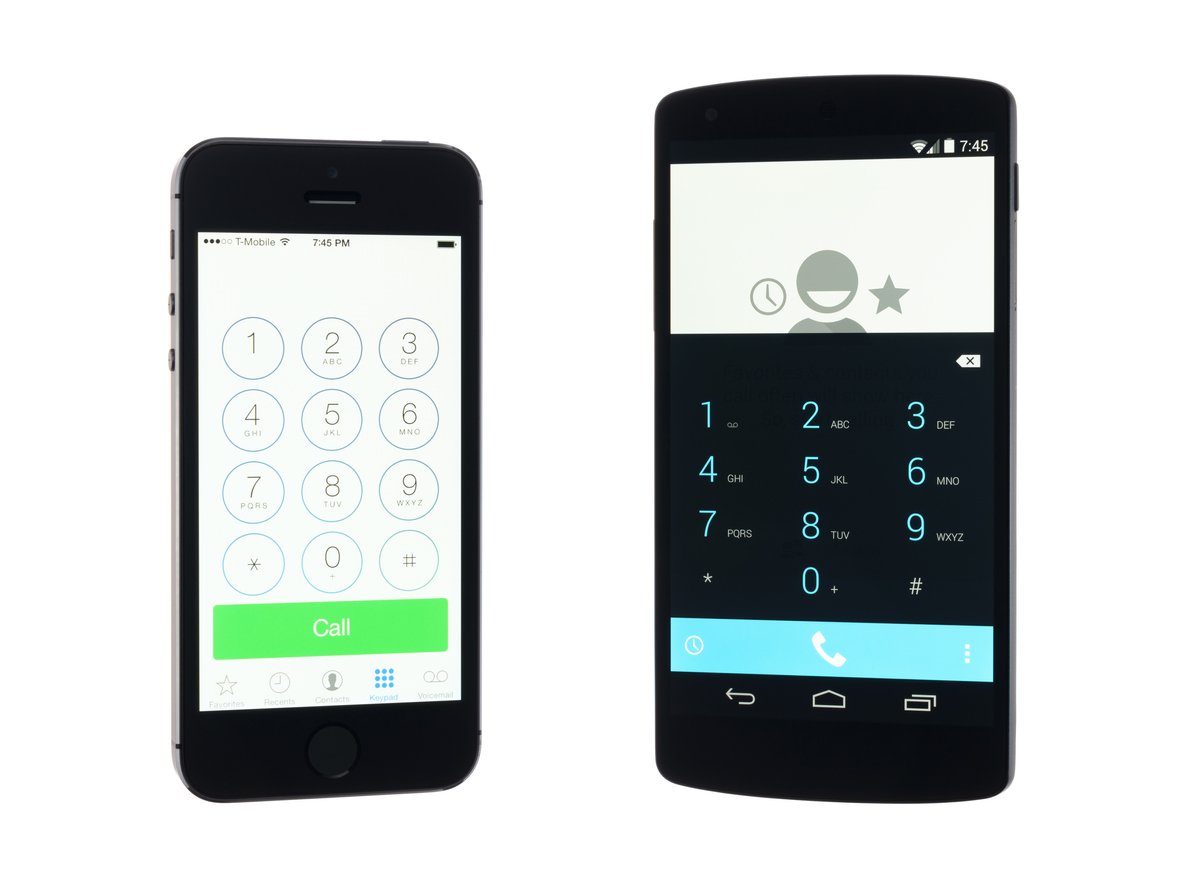
How Can Automatic Call Distributor System Increase Your Sales Team’s Efficiency
 Updated on
Updated on
By Ringy
Table of Contents
Table of Contents
Picture this:
Your sales team is drowning in incoming calls, customers are impatiently waiting on hold, and valuable leads are slipping through the cracks. Sound familiar?
That's where an Automatic Call Distributor (ACD) System steps in like a superhero for your business.
An ACD system is like an intelligent traffic controller for your inbound calls—it ensures that every caller is connected to the right agent at the right time, boosting efficiency and improving customer satisfaction.
Whether you're running a bustling call center or a fast-growing sales team, the right automatic call distribution software can be a game-changer.
In this guide, we'll break down the top features and benefits of an Automatic Call Distributor System, showing you how it streamlines operations, improves sales performance, and enhances customer experience.
Let's get straight into it!
Automatic Call Distributor Price Breakdown and Considerations
Before investing in an Automatic Call Distributor System, understanding the pricing structure is crucial. Costs can vary widely based on features, user capacity, and whether you opt for a cloud-based or on-premise solution.
Below, we'll break down the key factors influencing automatic call distributor pricing, typical pricing models, hidden costs to watch out for, and the long-term ROI benefits.
Factors Affecting ACD Pricing: Number of Users, Features, and Deployment Type (Cloud vs. On-Premise)
Several elements determine the price of an automatic call distribution software solution:
- Number of Users: Most providers charge per user or per agent, so the more employees using the system, the higher the cost.
- Feature Set: Basic call distributor solutions handle simple call routing, while advanced systems offer skills-based routing, IVR integration, analytics, and AI-powered automation, all of which impact pricing.
- Deployment Type: Cloud-based automatic call distributor software often has lower upfront costs but recurring subscription fees, whereas on-premise solutions require a larger initial investment for hardware and setup.
Cloud vs. On-Premise Pricing Comparison
|
Feature |
Cloud-Based ACD |
On-Premise ACD |
|
Upfront Cost |
Low to none |
High (hardware & setup) |
|
Monthly Fees |
Subscription-based |
None (one-time purchase) |
|
Scalability |
Easily scalable |
Limited scalability |
|
Maintenance |
Managed by provider |
Requires in-house IT team |
|
Customization |
Limited by provider |
High customization |
Typical Pricing Models (Subscription vs. One-Time Licensing)
When choosing an automated call distribution software, you'll encounter two main pricing models:
- Subscription-Based Pricing: A monthly or annual fee per user, common with cloud-based ACD systems. This model offers flexibility, automatic updates, and lower upfront costs.
- One-Time Licensing: A single payment for lifetime access, typically for on-premise solutions. While it avoids recurring fees, additional costs for upgrades, maintenance, and infrastructure should be considered.
Since you're here to get clear information about your next move with regards to implementing an automatic call distributor system for your business, let's look at a quick automatic call distributor price breakdown of top software solutions:
|
Automatic Call Distributor System |
Features and Price |
|
$109 per month (unlimited users) includes $1 per local number, 1000 minutes and 1000 texts per month, additional calls or texts are $0.01 each. |
|
|
Starts at $25 per month (but charges per user), local numbers cost $6 each (instead of $1 each with Ringy) and the call price per minute isn't disclosed on their website. |
|
|
Starts at $18 per month per user, but many additional features are locked behind extra fees. |
|
|
Starts at $29 per month per user, and includes 1 local or toll-free number. There is no pool of minutes included; calls and SMS are billed per minute and SMS. |
|
|
Starts at $30 per month per user. Includes unlimited inbound calls & internal calls. |
*Note: All prices are current as of March 2025*
Hidden Costs to Watch Out for (Setup Fees, Integrations, Maintenance)
Beyond the advertised pricing, several hidden costs can impact your budget:
- Setup Fees: Some vendors charge an installation or configuration fee, especially for on-premise call distributor solutions.
- Integrations: Connecting your automatic call distribution software with CRMs, help desks, or analytics tools might require extra licensing fees.
- Maintenance & Support: On-premise systems often require an IT team for updates, troubleshooting, and server maintenance. Even some cloud-based providers charge for premium support services.
ROI Analysis: How Investing in ACD Can Save Money in the Long Run
Despite the initial cost, an Automatic Call Distributor System can deliver substantial cost savings over time. Key ROI benefits include:
- Reduced Call Handling Time: Intelligent routing ensures customers reach the right agent quickly, reducing call durations.
- Higher Agent Productivity: Automation minimizes manual call transfers, allowing sales and support teams to focus on conversions and resolutions.
- Lower Operational Costs: Cloud-based automatic call distributor software eliminates the need for expensive hardware and IT maintenance.
- Improved Customer Retention: Faster, more efficient service leads to happier customers and repeat business.
Investing in the right automatic call distribution software isn't just about managing calls—it's about maximizing efficiency, cutting costs, and boosting revenue.
What is Automatic Call Distributor Software?
An automatic call distributor (ACD) system is an essential tool for any business, large or small. This system can be found in any office or call center and is often part of Voice Over Internet Protocol (VoIP) or Private Branch Exchange (PBX) systems. Automatic call distributor software is built to ensure smooth handling and routing of any incoming calls, even if there are hundreds of incoming calls all at once.
The purpose of automatic call distributor software is to properly route any incoming calls to the right contact center employee or agent as quickly and accurately as possible.
So how does the automatic call distributor system work?
This is where it gets a little bit technical.
How Does an ACD Route Call?
At a high level, the automatic call distributor system routes calls to appropriate agents based on a set of predetermined instructions or rules.
These rules mean that routing can be as simple as sending a call to an available agent rather than one that's already on a call, or as complex as automatically transferring a call to a specific department or agent.
Automatic call distribution software is usually used in conjunction with other technology, like Interactive Voice Response (IVR) to aid in the accuracy of routing calls.
IVR is that robotic phone voice you sometimes hear on the other end of the phone when calling a business, prompting you to "press 1" or another number so that the system can send your call to the appropriate place. More modern IVR software uses speech recognition and natural language processing to expand on the effectiveness of the system in answering customer inquiries.
More standard systems have the "press 1 to speak to a sales representative" pre-recorded message that simply guides the caller to select the appropriate department to route their call to manually. Some may even prefer this system to the more modernized IVR, especially if it's a small business with the need for fewer routing options, as an example.
What is the Difference Between an Automatic Call Distributor System and a PBX?
The main function of an automatic call distributor system is to connect incoming calls with agents. A PBX (Private Branch Exchange) system refers to the company's internal telephone network. Traditionally, PBX systems were analog and required hardware installation, but modern systems can connect with VoIP to provide a cost-effective way to manage a company's phone network over the cloud.
What is ACD IVR?
An automatic call distribution system can be abbreviated as ACD, while IVR stands for Interactive Voice Response. Modern business phone systems often use these two technologies together to route incoming calls more effectively.
For example, a customer calls in and wants to talk to sales. Because the business has IVR implemented in their phone system, the customer can use natural language to ask for sales and be transferred automatically.
Call Distribution Types

Call routing using automatic call distribution software can be done in a wide variety of different ways to cater to various businesses and their unique use-case scenarios. The following table summarizes the different ways that calls can be distributed using an automatic call distributor system.
|
Call Distribution Type |
Description |
|
Linear or fixed call routing |
Calls are sent to agents in order. If an agent is unavailable, then the call will move to the next available agent on the list. This routing method is often used when prioritizing certain agents over others (e.g. for unique skill sets). |
|
Round robin call routing |
Calls are sent to agents in order similar to linear call routing, but it's done continually. This ensures the entire team gets sent a call, one at a time, reducing the overall call load on the team. |
|
Uniform or equal call routing |
With uniform routing, the agent who has received the least amount of calls is prioritized for receiving new incoming calls over other agents. This ensures each agent receives an equal number of calls. |
|
Simultaneous call routing |
With this routing system, all agents are alerted to an incoming call, and the first agent to answer is the one to manage it. |
|
Schedule or time-based call routing |
Sometimes agents are unavailable due to scheduling changes, so this call method takes into account all agent working hours and schedule changes so calls aren't routed to someone who is unavailable. |
|
Skill-based call routing |
Skill-based routing takes into account an agent's specific skills, such as language or technical abilities, and routes call to the agent with the highest experience level first. |
|
Data-based call routing |
With data-based routing, the system checks the customer's data (account history) before routing the call to an agent. This helps prioritize VIP customers who call in for assistance. |
How Can Automated Call Distribution Software Make Your Sales Team More Efficient?

Sales motivation is always a tough thing to manage. It's safe to say that sales teams, in general, would like to spend more of their time actually selling rather than dealing with the administrative burden of fielding customer calls.
They want to know that when they answer the phone, a qualified lead or existing customer is waiting on the other end, and it's another opportunity for them to make another sale.
Call distribution software can help with sales motivation by offering the following benefits:
1. Fast and Intelligent Call Responses
One of the most obvious benefits of an automatic call distributor system is that it speeds up call response times, while also providing the added benefit of being able to route calls appropriately. Depending on the system you choose, there are also other features like customer call back scheduling when call volumes are high, or the ability to route certain customers to specific agents.
2. Increased Agent Productivity
With intelligent software that can route incoming calls to a free agent, customers are not left waiting unless it's necessary, and agents aren't left picking held calls from a queue.
In addition, most automatic call distributor software can intelligently route calls to an agent with the most experience dealing with a customer's specific issue, reducing the need for transfers and the customer needing to repeat their issue to multiple agents. It also provides a more productive, streamlined experience for the customer and agent alike.
3. Reduced Operating Costs

A more efficient telephony system through automatic call distributor software often results in reduced operating costs in general. Intelligent call routing means that an agent is never left without a call to take (unless there are low call volumes in general) meaning that managers can
4. Increased Efficiency
An automatic call distribution system typically means more efficient agents. Customers don't want to have to call back multiple times to achieve their goal, whether it's a sale or resolution to a problem. An automatic call distribution system with intelligent call routing means that most queries are solved on the first call, and therefore more customers are helped within a shorter time.
5. Can be Integrated with Existing Phone Systems
Most automated call distribution software is cloud-based, meaning that aside from no additional hardware costs, it can be implemented quickly and is often able to be integrated with existing VoIP software with little fuss.
Other technologies like IVR can often be fully integrated into the automated call distribution software, giving agents more flexibility and control with regard to caller information and purchase history.
6. Facilitates Team Collaboration
features that are standard of most ACD systems, like teleconferencing and whispering (where a manager or senior agent listens in on a customer call without the customer knowing) provide opportunities for enhanced collaboration among agents. This also eliminates the need for the customer to repeat information to multiple agents since more experienced agents would be listening in on the call and understand the issue should they need to step in.
Call recording is another feature that Ringy and most automatic call distributor software offer as a way to coach agents. This is why sometimes when you call a business, it will let you know that the call may be recorded for training purposes before connecting you to an agent.
In addition to these benefits, software like a power dialer is often built into automatic call distribution systems, increasing the efficiency in which calls are answered.
Key Features to Look Out For When Choosing an Automatic Call Distributor
Sure, it can be said that every business out there may need some form of automatic call distribution software, but what are the key features that make this system a must-have?
Let's explore those call system features now:
Must-Have Features: Skill-Based Routing, Real-Time Analytics, and Omnichannel Support
You cannot afford to miss the following features in an ACD system:
- Skill-Based Routing: Automatically assigns calls to the most qualified agent based on expertise, language, or department, reducing transfer times and improving first-call resolution.
- Real-Time Analytics: Provides insights into call volume, agent performance, and customer wait times, helping managers optimize operations.
- Omnichannel Support: Allows customers to connect via phone, chat, email, or social media, ensuring a seamless experience across all communication channels.
Cloud-Based vs. On-Premise: Which Is Better for Your Business?
The decision between a cloud-based automatic call distribution software and an on-premise solution depends on your business's size, budget, and operational needs.
- Startups & Small Businesses: Cloud-based ACD is ideal due to lower upfront costs, easy scalability, and minimal IT maintenance. It allows growing teams to add new users without major infrastructure investments.
- Large Enterprises & Regulated Industries: On-premise solutions provide full control over data security, customization, and compliance with industry regulations (e.g., healthcare or finance sectors).
- Remote & Hybrid Teams: Cloud-based automated call distribution software enables remote work with flexible, location-independent access, while on-premise setups might be restrictive.
Scalability and Integration With Existing Tools (CRM, Helpdesk Software, Etc.)
A scalable automatic call distributor software grows with your business. Ensure it can handle:
- Increasing Call Volumes: The system should accommodate rising inbound calls without performance issues.
- CRM & Helpdesk Integrations: Seamless connection with platforms like Salesforce, HubSpot, Zendesk, or Freshdesk streamlines workflows and enhances customer interactions.
- AI & Automation Capabilities: Features like predictive analytics, chatbots, and automated call transcripts improve efficiency and decision-making.
Customer Support and Reliability of ACD Provider
The best automatic call distributor system should be backed by reliable customer support. Key factors to consider:
- 24/7 Support Availability: Ensure the provider offers round-the-clock assistance, especially if your business operates across multiple time zones.
- Uptime & Reliability: Look for providers with a strong uptime guarantee (99.9% or higher) to avoid disruptions.
- User Reviews & Case Studies: Research customer testimonials to gauge real-world performance and satisfaction levels.
A well-chosen automatic call distribution software doesn't just streamline call handling—it enhances business growth, optimizes resources, and elevates customer satisfaction.
Conclusion

Automatic call distributor software has been around for decades, with many innovations and changes causing the software to evolve significantly over the years.
With the rise of cloud VoIP reducing the need for expensive in-house hardware the world of automatic call distributor systems has moved into the cloud as well, making them quick and easy to implement.
From the plethora of call routing options to the many different features and benefits that an automatic call distributor system can provide, it's easy to see why this system has persisted over the years as the answer to businesses who need to handle increasing numbers of incoming customers calls.
If you're ready to see how an automatic call distribution system can improve your business's call center environment, as well as benefit your sales and marketing teams, then don't hesitate to schedule a demo with Ringy. We'll show you our software and walk you through its features and benefits. Plus, we offer comprehensive (and free) onboarding so everyone can be confident when the system is implemented.
Book your demo with Ringy today!

Skyrocket your sales with the CRM that does it all.
Calling? Check. SMS? Check. Automation and AI? Check. Effortlessly keep in touch with your customers and boost your revenue without limits.

Take your sales to new heights with Ringy.
Sales in a slump? Ringy gives you the tools and flexibility you need to capture leads, engage with them, and turn them into customers.
Subscribe to Our Blog
Enter your email to get the latest updates sent straight to your inbox!
Categories
Related Articles


























































